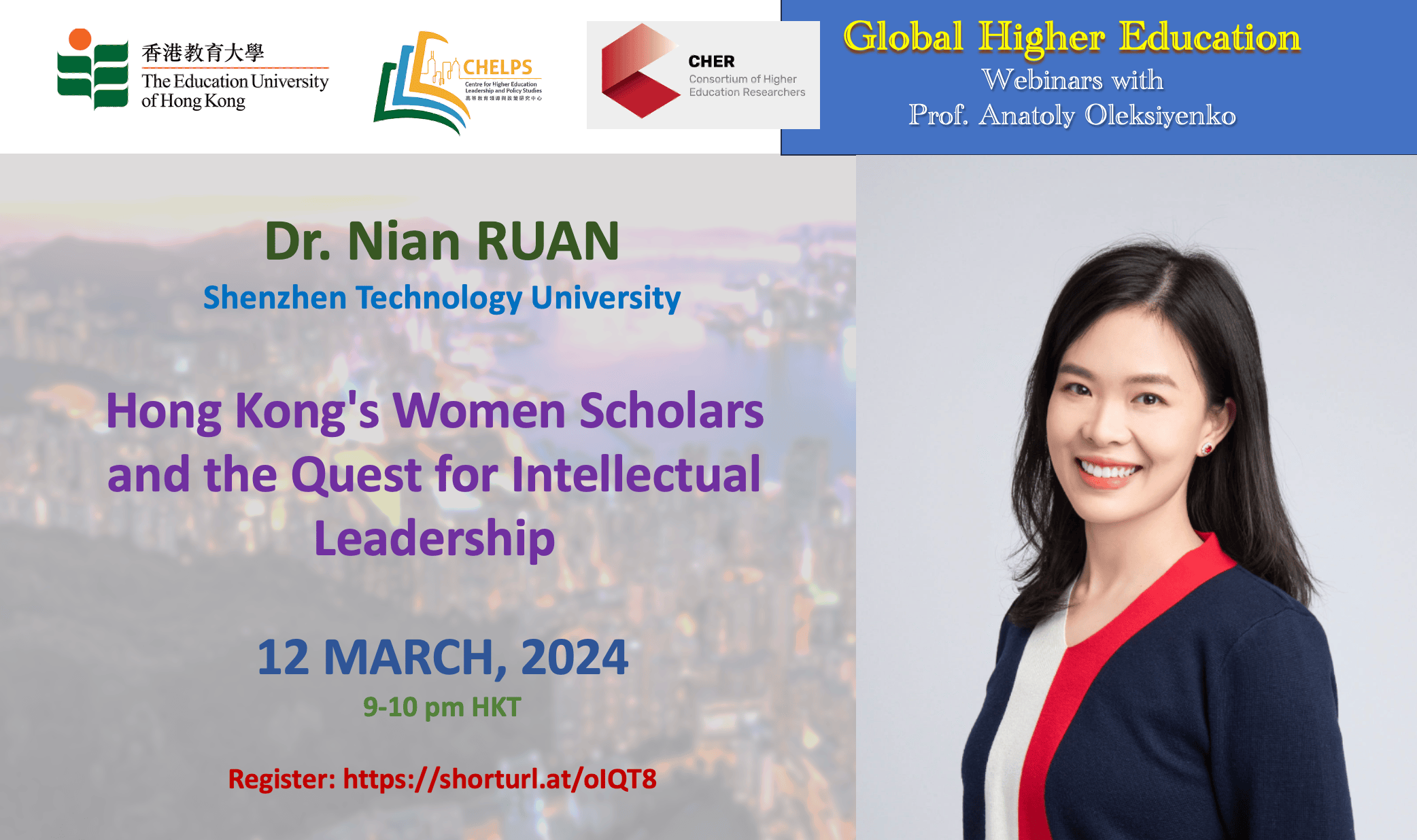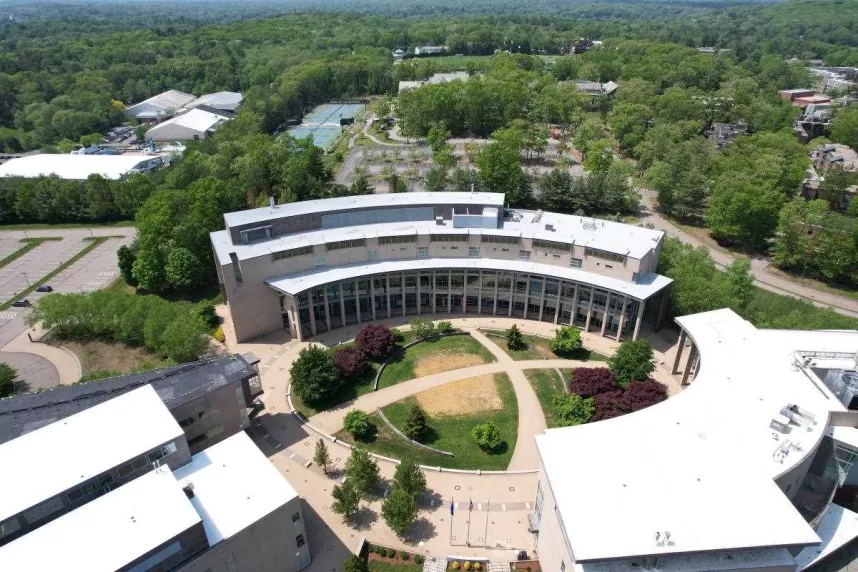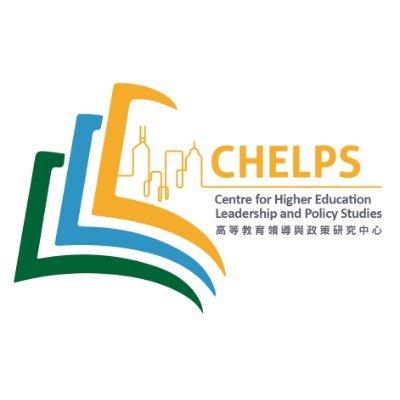News and Announcements

Date: Wednesday, March 20, 2024 at 4pm CET.
Speaker: Cláudia S. Sarrico, policy analyst at the OECD Science, Technology, and Innovation Directorate.
Location: WU Vienna University of Economics and Business, Institute for Higher Education Management, Building D5, 6th Floor, Room D5.6.029 Department Lounge (http://campus.wu.ac.at/).
The event location has barrier free access.
For those who cannot attend in person, can join us online via MS Teams livestream.
Please express your interest by registering at This email address is being protected from spambots. You need JavaScript enabled to view it..
Abstract:
The presentation focuses on the career options of early-career researchers at the stage of doctoral education and postdoctoral work. It identifies policies and practices to promote diverse career options for doctoral and postdoctoral researchers, flexible career trajectories and ultimately better-quality research and innovation across different economic and social sectors. It offers recommendations and a set of policy options to: promote engagement and interaction with employers outside academia; provide doctoral and postdoctoral researchers with experience and skills for diverse careers within and beyond academia; render more visible and encourage valorisation of diverse career options; support career development and guidance on career options for researchers; promote inter-sectoral mobility with business, government and private not-for-profit sectors; and reconfigure and support careers in academia.
About the speaker:
Cláudia S. Sarrico is a policy analyst at the OECD Science, Technology, and Innovation Directorate. She is the project manager of the Research and Innovation Careers Observatory project. Previously she was the project manager of the OECD Global Science Forum projects on Reducing the Precarity of Academic Research Careers and Promoting Diverse Career Pathways of Doctoral and Postdoctoral Researchers.
Before joining the OECD, she was a Professor at the School of Economics and Management of the University of Minho, and a senior researcher at the Centre for Research on Higher Education Policies, Portugal. She holds a PhD in Industrial and Business Studies from Warwick Business School.

On February 22nd, Richard K. Miller will give us insights into Franklin W. Olin College of Engineering.
Olin College of Engineering was established in 1997 for the specific purpose of developing a new paradigm for engineering education. The purpose of Olin is to become an important and constant contributor to the advancement of engineering education in America and throughout the world. The average Olin graduate has completed about 20 team-based engineering design projects while earning an ABET accredited engineering degree deeply infused with human centred design and entrepreneurial experience.
Olin was identified in a 2018 benchmark study published by MIT as among the top two undergraduate engineering programs in the world. One of the first graduates of Olin College is Frances Haugen ’06 who was the Facebook whistleblower who testified before parliament and was featured on the cover of Time magazine.
In the ten-year period from 2010 – 2020, Olin hosted visits from the leaders of 800 universities in 65 countries interested in learning from the Olin experiments. This talk by Richard K. Miller, Founding President of Olin College, will cover the origin, founding principles and experiences, and the lessons learned for the broader field of higher education in every discipline.
Click below to watch the preparatory video and register!
https://constructor.university/events/ground-remaking-engineering-education-21st-century

The Centre for Higher Education Leadership and Policy Studies (CHELPS) at The Education University of Hong Kong (EdUHK) is currently seeking talented individuals to fill the following roles:
- Post-Doctoral Fellow (PDF) - The PDF will play a key role in managing higher education research projects and initiatives, collaborating with CHELPS co-directors on various programs, and contributing to the implementation of a new Master of Arts in Global Higher Education (MAGHE) programme, summer institutes, and leadership development initiatives. For more details, please visit:https://www.eduhk.hk/cms/f/career/27199/PDF_CHELPS_2400153.pdf
- Project Officer (PO) - The PO will provide essential support to visiting professors, executive administrators, and distinguished presenters, assisting with administrative duties, budget management, and communication channels. For further information, please refer to: https://www.eduhk.hk/cms/f/career/27200/PO_CHELPS_2400154.pdf
- Executive Assistant (EA) - The EA will be responsible for providing administrative assistance for MAGHE while taking care of programme promotion, student admissions, course coordination and student support among other key tasks. More information can be found here: https://www.eduhk.hk/cms/f/career/27162/ExeA_CHELPS_2400125.pdf
Application deadlines:
EA: February 22, 2024
PDF and PO: March 4, 2024

The Call for Papers is now open for the 6th Forum “Higher Education and the Labour Market” (HELM) of the Institute for Employment Research (IAB) and the German Centre for Higher Education Research and Science Studies (DZHW). There will be a special focus on The Bologna Process After 25 Years: Continuities, Changes, and Evaluations.
For more information about the call for papers, please follow this link: https://www.dzhw.eu/pdf/veranstaltungen/helm/cfp_HELM_2024.pdf. The conference welcomes contributions from various disciplines, particularly from economics, social sciences, and educational sciences. Please submit a short outline (max. 500 words) by April 8th, 2024 to This email address is being protected from spambots. You need JavaScript enabled to view it..
The conference will take place on June 19th-20th in Hanover, Germany. The conference language is English.

